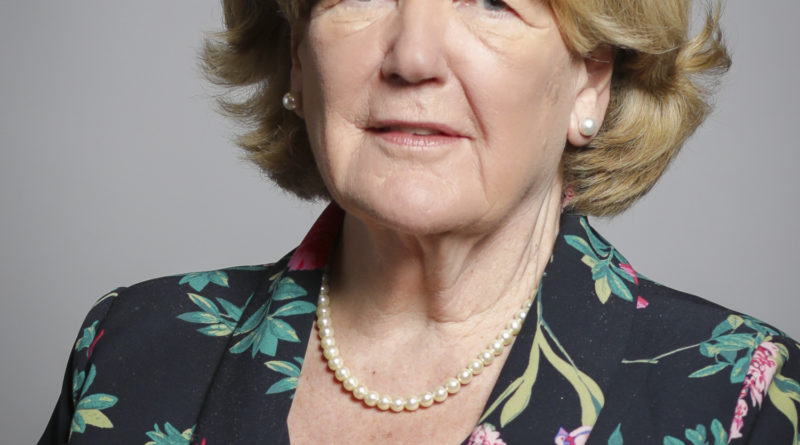Ann Taylor (Baroness Taylor of Bolton) – 2022 Tribute to HM Queen Elizabeth II
The tribute made by Ann Taylor, Baroness Taylor of Bolton, in the House of Lords on 9 September 2022.
My Lords, the opening comments today have set the tone exactly right on how this House wanted to make its tributes to Queen Elizabeth. The Leader of the House, the shadow Leader, the noble Lord, Lord Newby, and the noble and learned Lord, Lord Judge, all presented, in their own ways, the whole feeling that we all have of respect, sorrow and pride in what Her Majesty had achieved—alongside the human side, which is also extremely important for us all to remember at this time. I thank noble Lords for those comments; it was the House of Lords at its best and encapsulated all that we feel.
I will say a few words from my own personal experience. In 1997, I became the first woman to be appointed President of the Privy Council—it was an honour. It was also a strange event; the title had to be changed because previously it had been Lord President, and I am told that there were many discussions with the palace and the Cabinet Office as to whether that word—“Lord”—could be dropped. Indeed, the first time I met the Queen, she commented on the change, and we had a nice exchange of views as to what was going to happen in the future for more equality—she was very interested in that.
Because I was President of the Privy Council, I had a one-to-one meeting with the Queen before each Privy Council meeting—every couple of weeks for that first year. During that time, I gained some insight into how she operated and what her attitude was. I will make one or two comments following on from what others have said. The Queen exhibited absolute professionalism and she was on top of everything. My noble and learned friend Lord Morris mentioned this in terms of the Welsh affairs, and the noble Baroness, Lady Benjamin, mentioned that the Queen had read every single newspaper. After each Privy Council meeting, we would gather and have a cup of tea. I sometimes thought that Her Majesty knew more about the SIs that we had just passed than many of the Ministers who had presented them—she really did her homework.
Of course, mention has been made of the Queen’s sense of humour, which was really tested on occasions. One example is her straight face when one of my colleagues misread his instructions about kneeling at the first stool and taking the oath. He moved to the second stool—to begin kissing hands—by scurrying across the floor on his knees because he was in such deference to the occasion. It was even more amusing that this was one of my more left-wing colleagues. Although privy counsellors were trying their best not to laugh, the Queen dealt with that situation calmly.
I think that many noble Lords have heard the story about Clare Short. We once had a Privy Council meeting to which Clare was late, so she barged into the room in a flurry, and we continued the meeting. Then Clare’s phone goes off—we were all told we must turn our phones off and leave them outside—and the Queen said, “I trust it wasn’t anybody important”, and we carried on with our proceedings.
There was another side to the Queen: she could make her own decisions. When I was President of the Privy Council, we had a Privy Council dinner in the Royal Gallery to commemorate the 50th wedding anniversary of the Queen and Prince Philip—I think that some noble Lords here were present. The week before, there was a lunchtime reception in Banqueting House, attended by the Queen, and we had a Privy Council meeting shortly afterwards. She commented to me that the occasion at lunchtime had been very relaxed because they got speeches out of the way before they started the reception and went around talking to people. She thought it had been a nice change. So I said, “Why don’t we do that at the Privy Council dinner next week?” She said, “I think that is a good idea; I would enjoy it much more if we got the speeches out of the way”. When I returned to my office, the Queen’s private secretary was already plotting with my private office to ensure that it did not happen—but, in fact, the Queen had said that it should happen, and happen it did. So she could intervene to make decisions.
The final point I raise is the kindness that she showed to the Ministers with whom she was dealing. It is never easy when you are sacked from the Cabinet to move on but, after I left office, I received an invitation three or four weeks later inviting me to tea. It was almost like a HR redundancy chat, because somebody was asking me about my plans and making suggestions —we were not just having a cup of tea. She then went on to talk about my family and how they talked about the situation. It is not surprising that everyone saw how close she was to her family, because she understood how other people’s families reacted to them in any set of circumstances.
This afternoon, we have managed to capture the flavour of having such an astounding person as our monarch. At a time when the constitution is—shall we say?—challenged in some respects, to have had her there at the head of a constitutional monarchy has been a benefit to us all.

